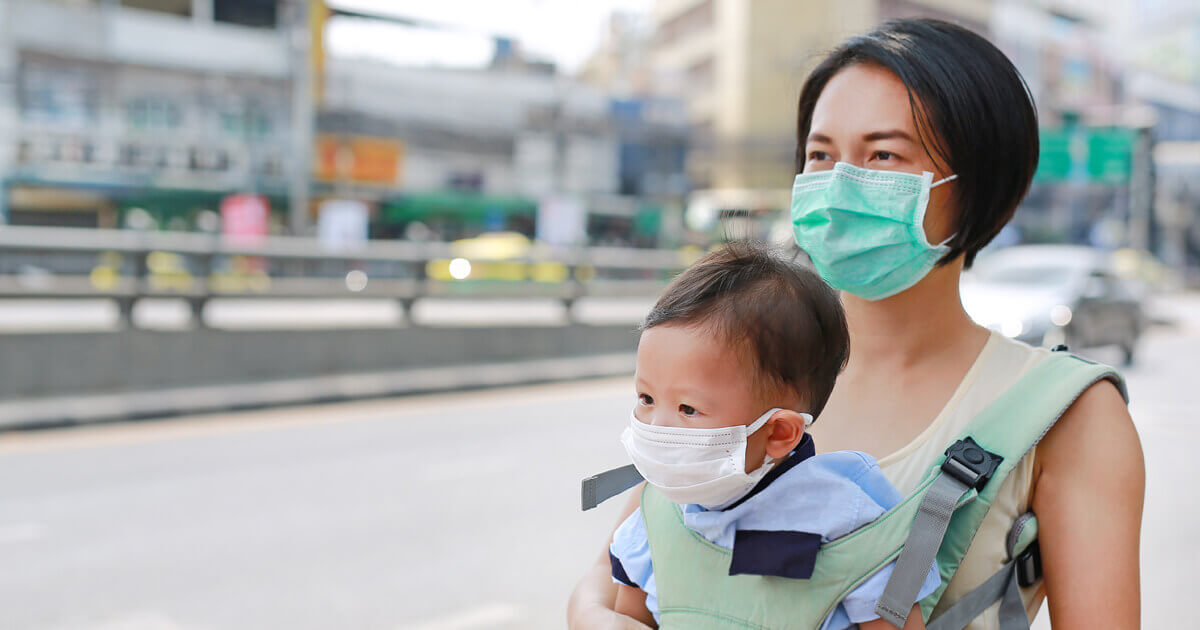Unborn babies are in danger of being exposed to air pollutants as new research has found air pollution particles on the unborn side of the placenta.
The research is the first to show that the air particles breathed in by the mother can cross the placental barrier and potentially affect the unborn baby. Thousands of the tiny particles per cubic millimetre of tissue were found in every placenta analysed.
Damage to unborn babies at this early stage of development can have lifelong consequences and Professor Tim Nawrot at Hasselt University in Belgium, who led the study, said:
“This is the most vulnerable period of life. All the organ systems are in development. For the protection of future generations, we have to reduce exposure.”
Published in the journal Nature Communications, the research examined 25 placentas from non-smoking women in the town of Hasselt in Belgium.
In each case, researchers found black carbon particles on the unborn baby’s side of the placenta and the number correlated with air pollution levels experienced by the mothers.
They also examined placentas from babies who had died as a result of natural miscarriage. They found the black carbon particles were present even in unborn babies only 12 weeks old.
The detection of the particles on the foetal side of the placental barrier means it was very likely the foetuses themselves were exposed to the pollutants. Analysis of foetal blood for particles is now under way, as is research to see if the particles cause DNA damage.
Professor Jonathan Grigg of Queen Mary University of London, led a group which presented the first report of particles in five placentas in September, said:
“We should be protecting foetuses and this is another reminder that we need to get [air pollution] levels down,” he said.
According to Professor Nawrot, levels of pollutants can be particularly high near busy roads.
Right To Life UK spokesperson, Catherine Robinson, said:
“The detection of air pollutant particles on the unborn baby’s side of the placenta is obviously a concern for us all, but particularly for pregnant women and their unborn babies, and we should do what we can on an individual basis to minimise our exposure.”
“It is also interesting to note the Guardian’s use of language in this piece. It mentions the fact that the “unborn babies” and “unborn children” can be affected by air pollutants. This is of course correct but is in sharp contrast to their ‘News Style Guide’ which has a strong pro-abortion bias.”
“As this article was apparently attempting to emphasise the negative effects of air pollution, and did not mention abortion, the Guardian seemed content to use language that humanises the unborn child.”










